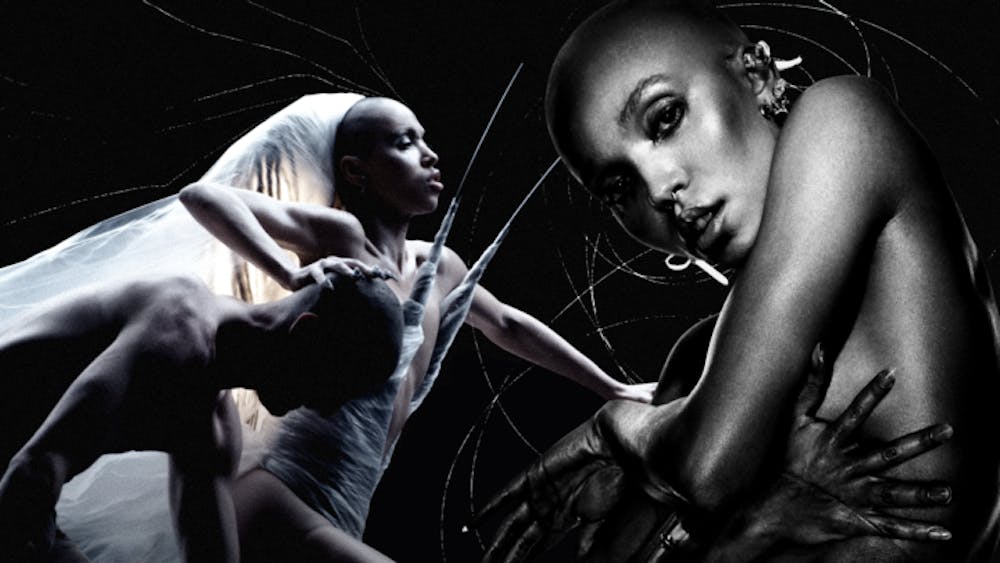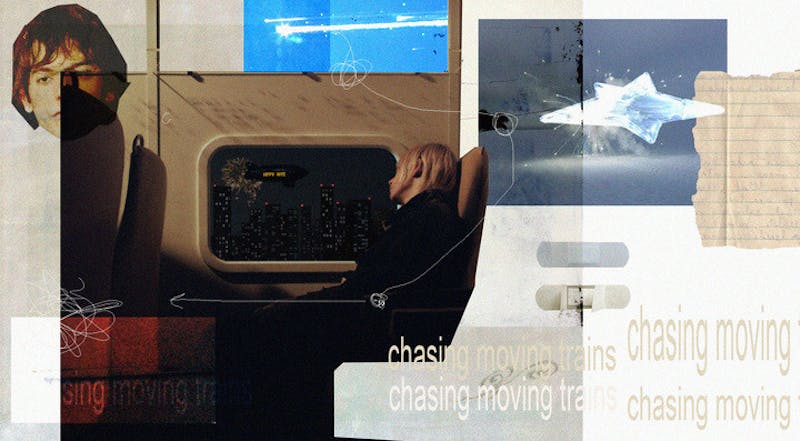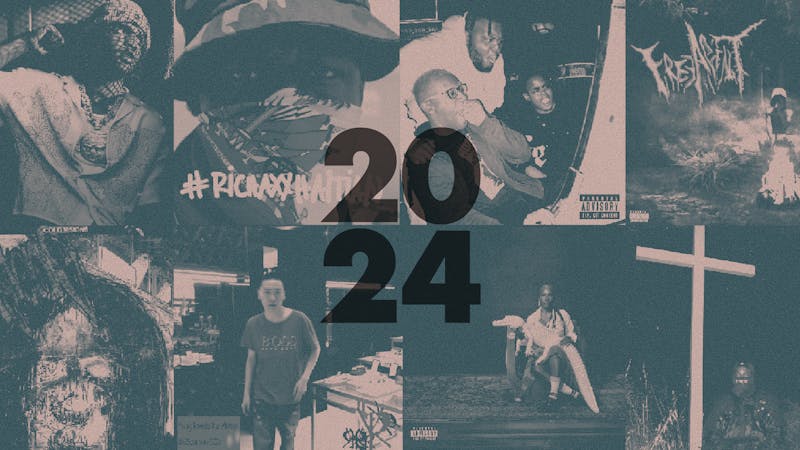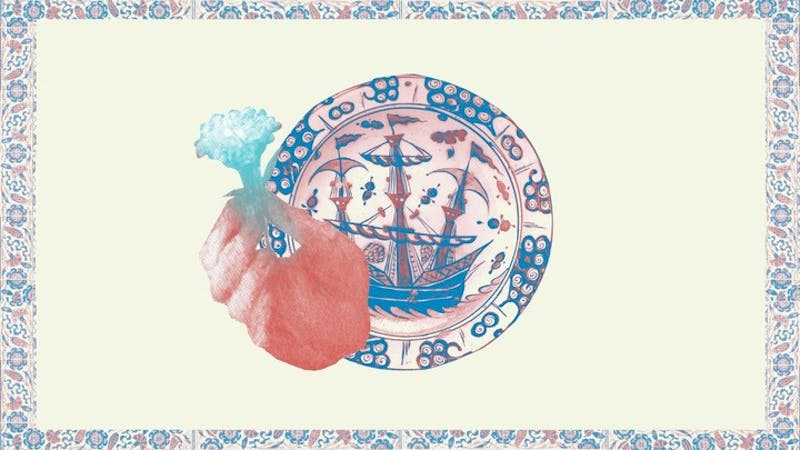The air is cold and dry. We yawn, stretch tired limbs, and squint crusty–lidded eyes into the bleak sunlight as we trudge down Locust Walk to our 8:30 a.m. classes. It's another day we won’t touch grass or see green. Each week is an endless rotation of Pret coffee, Van Pelt, and classes we can’t stay awake for. It’s February at Penn.
When winter smothers the campus with an unglamorous ennui, one of the only reliable sources of enjoyment we have is music—it reminds us what it’s like to feel in a season where everything seems untouchable, paralyzed, and numb. Some artists evoke the depressing drudgery of life during these months (and our desire to escape from it) better than others, but few are able to speak so directly to that particular, wintery brand of quiet desperation as FKA twigs does in her latest album, EUSEXUA.
FKA twigs defines the word “eusexua” as “a state of euphoria that feels like transcending form” in an interview with British Vogue in April 2024. This yearning for the transcendent is not uncommon; in fact, it’s a sentiment that’s currently flourishing in alt–pop spaces—Lana Del Rey and Ethel Cain, for example, are artists whose works are consistently laced with nostalgia, with a craving for the past or other forms of escape like weed, sex, ghosts, you know the drill.
But twigs distinguishes herself from other—dare I say Neo–Romantic—strains of art which yearn for an unattainable glamour. She does this by aligning explicitly with the rave scene and a culture of postmodern British experimentalism. The marriage of avant–garde aesthetics and this longing for something deeper is probably the most revolutionary aspect of EUSEXUA. By juxtaposing the introspective and the frivolous, twigs creates an interesting duality, one that speaks directly to our generation’s angst.
To FKA twigs, escapism means a night out at the club, or more specifically, its sensory experience. By drawing distinctions between these spaces themselves and the levitating sensation they lend you (eusexua, perhaps), she navigates complicated emotional territory while simultaneously invoking the excitement of nightlife, all without sacrificing any of the nuance or believability.
Some highlights of the album are “Perfect Stranger,” an addictive little gem that extolls the benefit of anonymity in a one–night stand, though not in the ways you’d expect. FKA twigs gracefully trips in and out of euphoric horniness and a heartbreaking numbness on this track. “We’re all getting through this our own way,” she croons over a metallic beat. “I’d rather know nothing than all the lies. Just give me the person you are tonight.”
Another banger is “Drums of Death”; somehow sonically reminiscent of a technical glitch, but in the most satisfying way possible. In case you had any doubts about twigs’ ability to create club–worthy tracks, “Drums of Death” stands as one of the most danceable songs I’ve heard this year. Undoubtedly one for the boiler rooms this year.
EUSEXUA is really more of an art installation than an album; it comes with its own philosophy of movement, art, and life. It’s visionary. Many may be tempted to compare EUSEXUA to BRAT for its apparent marketability and relation to the rave scene. But unlike Charli XCX in her recent album, FKA twigs lets musical form be determined by emotional impetus. There’s a whole new dimension of emotion we can feel in this album. Somehow, though subtly, EUSEXUA allows twigs’ haunting fear and sadness to gleam through, resulting in a powerful portrait of chaos and coping. This brat summer, whilst we were “bumping that” generational trauma track, twigs was cooking up an album of timely, relatable, yet somehow mythical music that stares directly into the soul of a lonely, ravenous generation.






